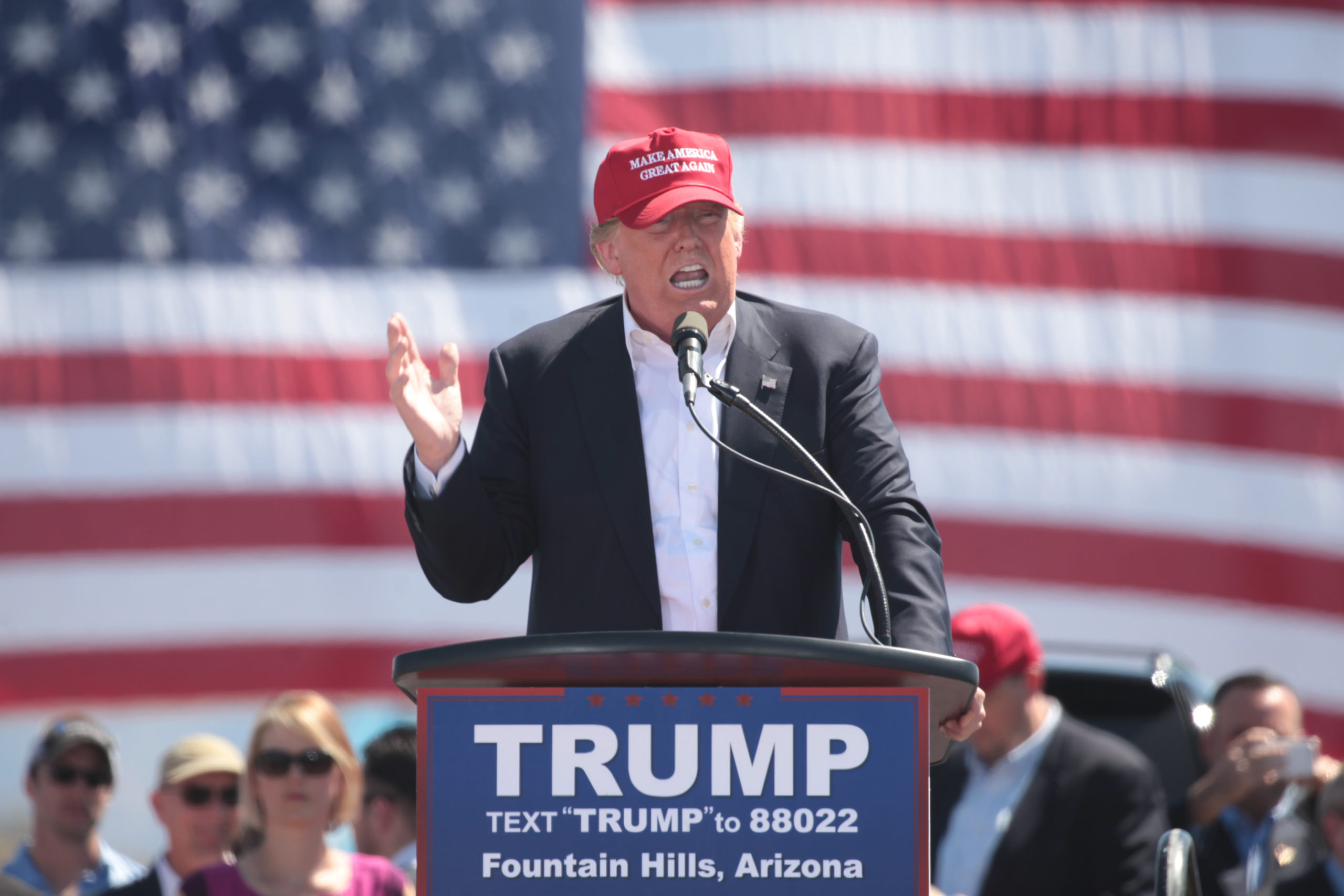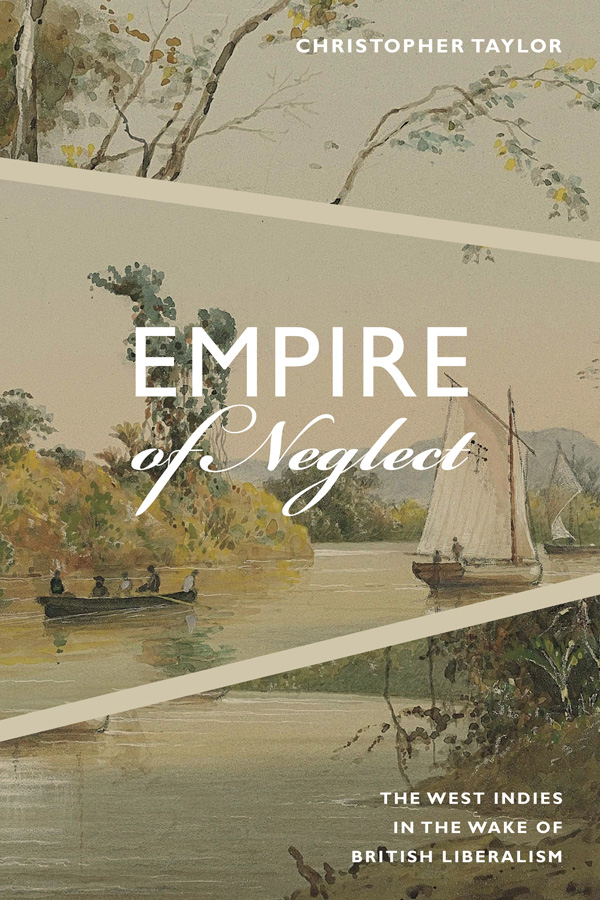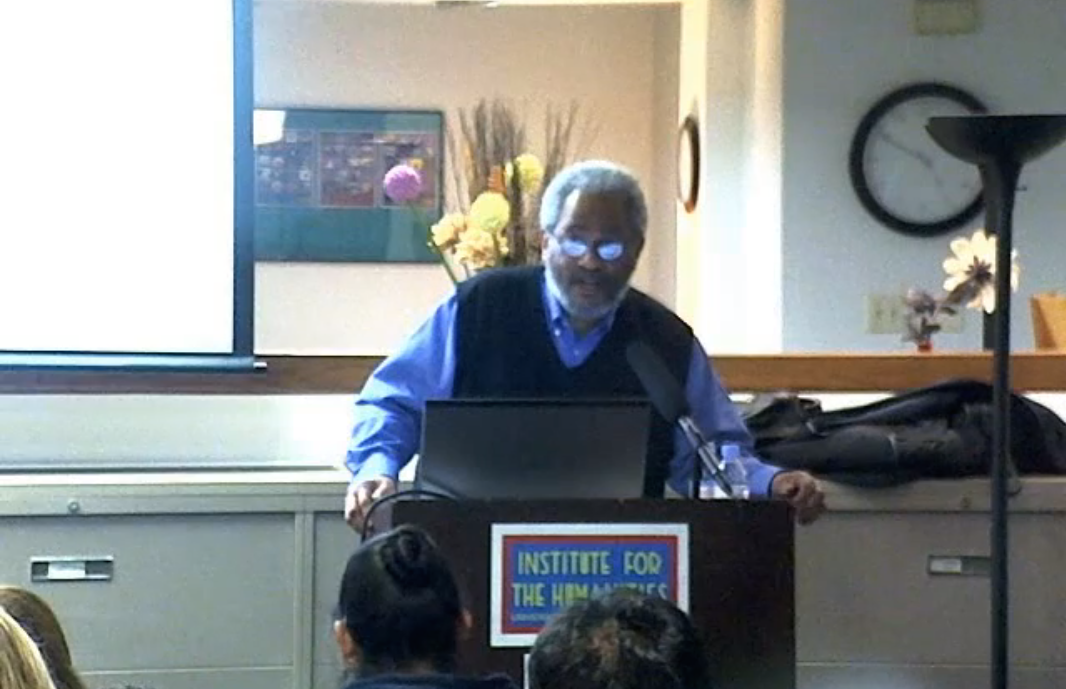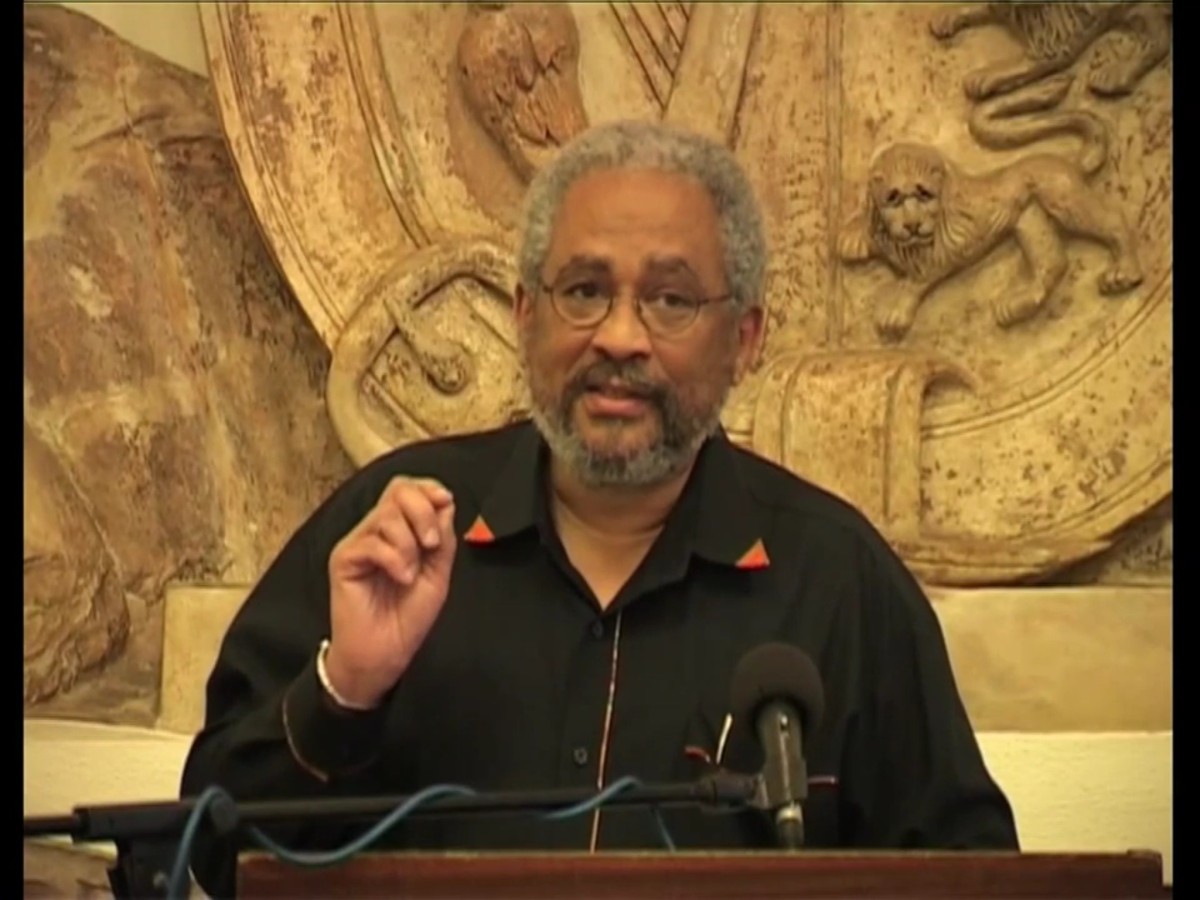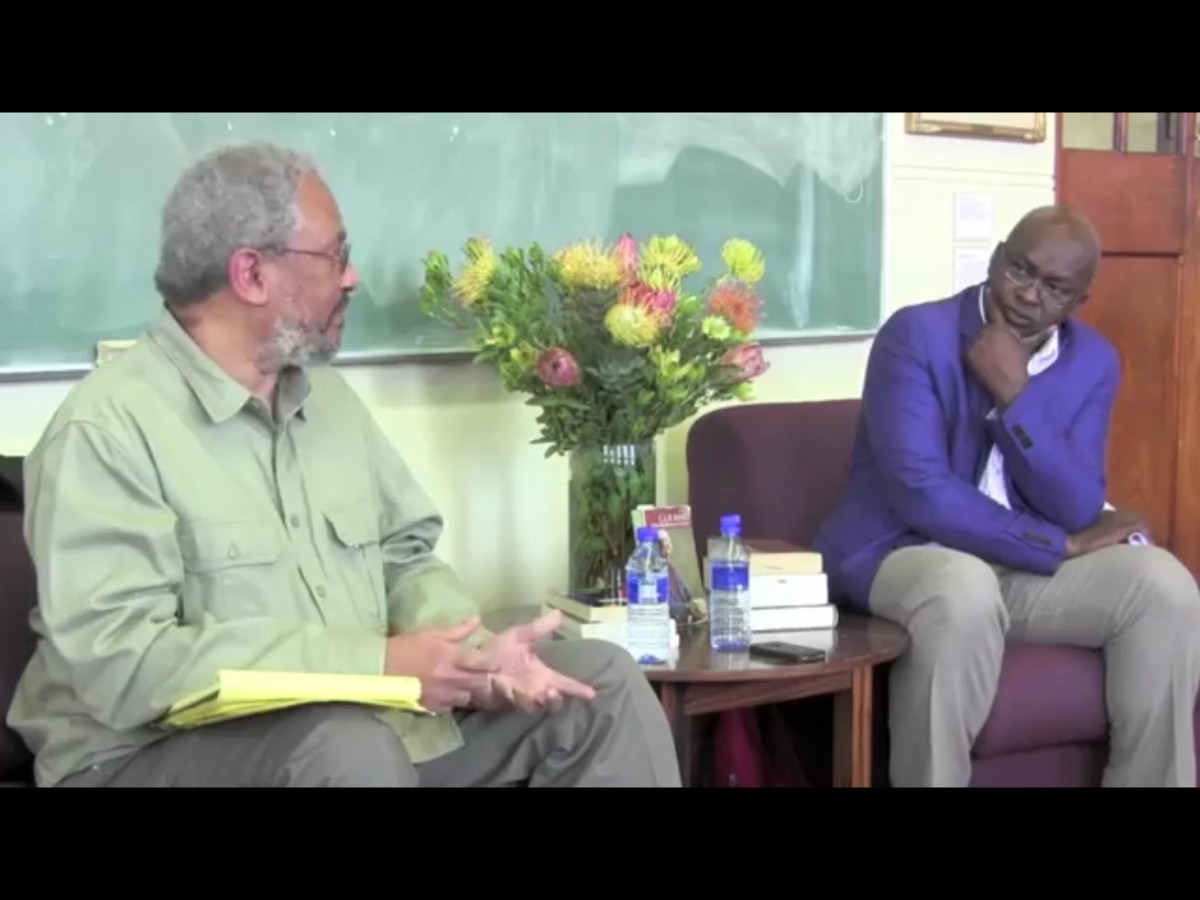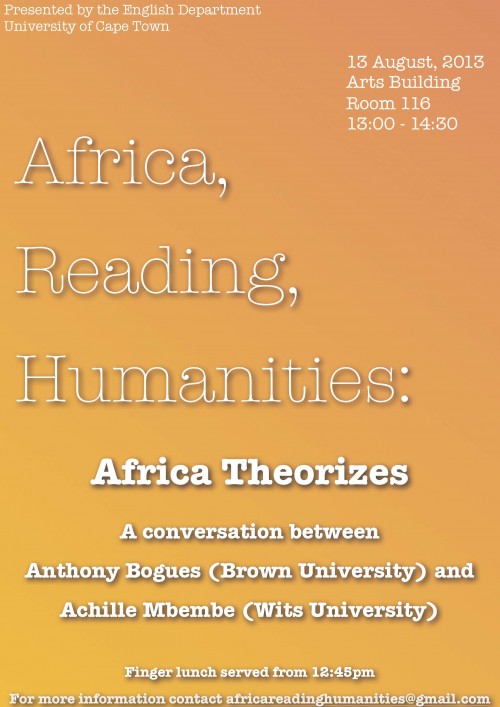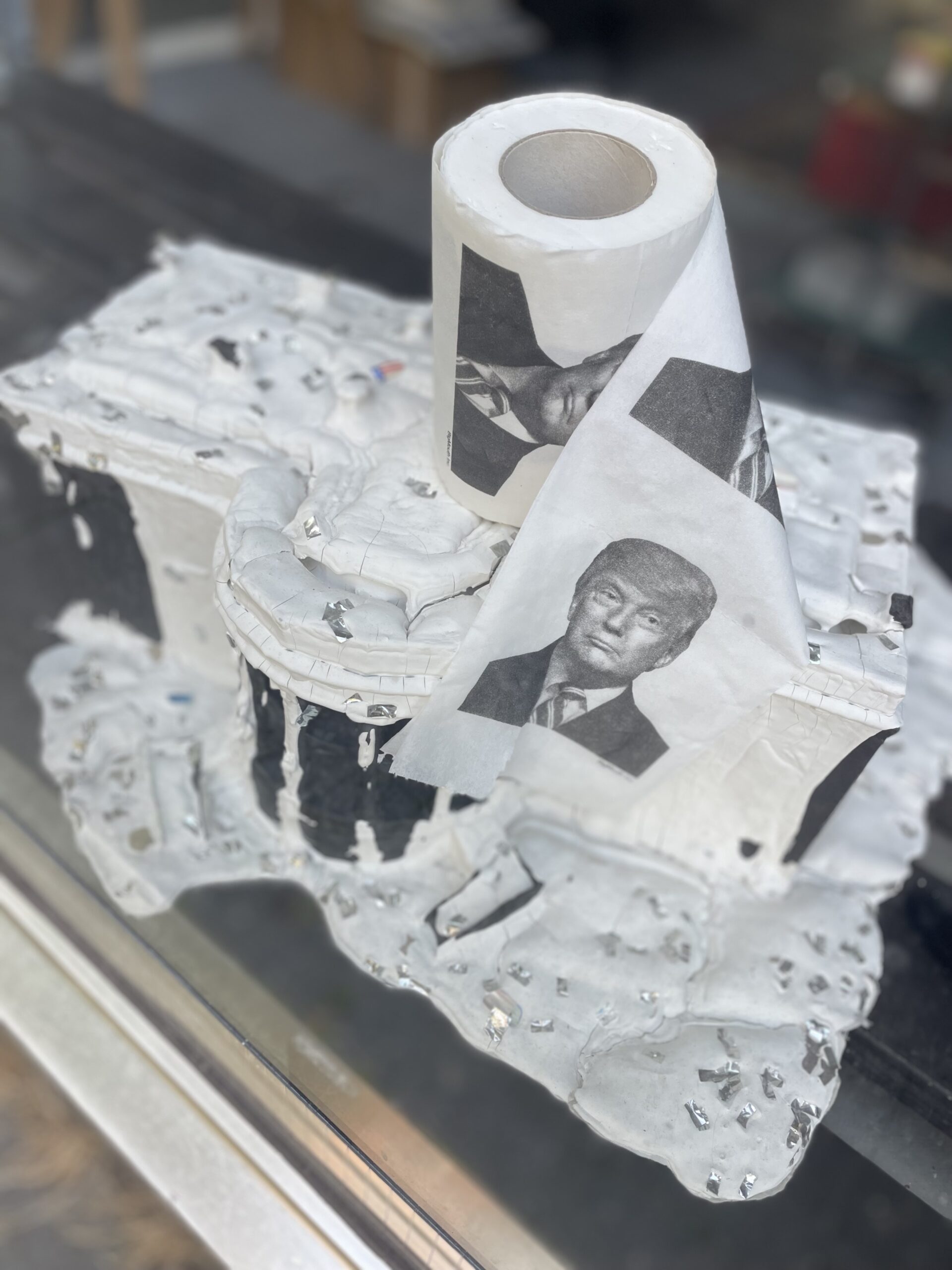by Anthony Bogues
Review of Christopher Taylor, Empire of Neglect: The West Indies in the Wake of British Liberalism (Duke University Press, 2018).
To write about Empire today is of some significance. To connect Empire to the practices of nineteenth century British liberalism is critical. Christopher Taylor’s Empire of Neglect, which argues that in British colonial policy, “liberal freedom becomes a form of liberal neglect,” Taylor, 2018, 3) is thus already doing important work. That it does this through a critical literary lens marks an opening for those of us who think that critical scholarship currently demands an interdisciplinary approach. In the field of political thought/political theory the writings of Uday Metha, Jennifer Pitts and others have laid some grounds for thinking about the ideology of liberalism and its entanglements with the various European colonial projects, particularly the British and French colonial empires. In these studies, the Caribbean—despite being one of the early centers of British colonial rule and site of several conflicts and territorial transfers from one colonial power to the next — is often elided. And, all of this is strange since the Caribbean before the late 1870s scramble for Africa was the venue from which many theories about blackness were formulated. One only has to read Jefferson’s Notes on Virginia to see the copious references to the Jamaican colonial administrator and historian Edward Long’s three volumes on the history of Jamaica published in 1774. Jamaica was considered in the eighteenth century the “best jewel in the British Diadem.” And even after the abolition of slavery there was continued British preoccupation with these former slave societies.
Nineteenth century British political ideas and thought in general were deeply engaged with the Caribbean in the aftermath of the abolition of the slave trade in 1807 and then the ending of the formal social system of racial plantation slavery in 1838. In the words of the 1839 “Memorandum of the West Indian Assemblies” from the Colonial Office, the new key concern for the British colonial policy was the “institutions of the colonies and the new rights given to the negroes” (Cited in Bogues 2018, 156). These rights, which purported to make the once enslaved black population subjects but not citizens would become a contested terrain. All of this was not accidental once we recall that John Stuart Mill argued in Liberty that “despotic government” was acceptable for the colonies until they had arrived at a stage where they could be offered self-government. In this tutelage model of rule, what I have called elsewhere the “ladder of civilization,”(Bogues 2005, 217) there was a profound set of distinctions between being a subject and citizen. Included in these distinctions were issues of suffrage and conception of capacity. The conceptions of capacity meant several things including: political self-rule, mastery over the self, and forms of rationality, all summed in the word character.[i] This conception of capacity became a key element of Anglophone Caribbean anti-colonial thought so that in many of the writings of the newly formed black intelligentsia during this period the frame for anti-colonial thinking was around them having the capacity for self-rule. However, a key issue issue would be who was judging who and therefore what did the color of capacity look like? Part of the strength of Empire of Neglect is to point to how capacity was a problematic terrain of anti-colonial thinking.
Liberalism and colonialism
Often times, in our general thinking about liberalism and empire we focus on the main political thinkers of the period. Yet, as Empire of Neglect reminds us, liberalism was not only wrought through theoretical work; it was constructed as well by colonial practices. And here one is thinking about what colonial power did and how these deeds were then formulated back into liberalism and where that did not happen, how liberalism would create sites of difference in which might was right. Liberalism therefore was not an ideology and theory without practices, but rather within forms of colonial rule it was one in which colonial practice shaped political ideas. Therefore, to tell a more complex story of the history of political thought requires us to probe practices of thought because in any ideological configurations there is a profound relationship between the deed and the word. In trying to grapple with British liberalism in the mid-nineteenth century it behooves us to grapple with the critical issue that faced British colonial power at that time. So one might read Empire of Neglect as working through a form of rule which British colonial policy sought to enact. In the case of the Caribbean, colonial rule was a complex matter because the colonies were slave colonies. Within some Caribbean slave colonies there were local white legislative assemblies that governed the territories. All slave colonies were run by a colonial governor who worked in tandem with the British colonial office that set colonial policy based on British parliamentary decisions. In such contexts violence as an technology of rule was the order of the day.
As stated before, after the abolition of slavery, the crucial question for British colonial policy and politics was: how were these colonies to be ruled now that slavery was abolished? One current of this preoccupation was expressed in the phrase the “new rights of the negroes.” By the 1850s this preoccupation about how the colonies should be ruled became a driver of British colonial policy towards the Caribbean. A figure who represented this drive and wrote many essays about this as an Oxford professor of political economy was Herman Merivale. His essays and speeches brought him some public acclaim and he moved from Oxford to become colonial secretary in the British colonial office.[ii] In the lecture “Colonies without slaves or convicts,” Merivale noted that “the economical objects of colonization are two only: First, to furnish means of bettering their condition to the unemployed, ill–employed, portion of the people of the mother country. Secondly, to create a new market for the trade of the mother country” (Merivale 1842, 33). To create a new market for British trade required creating new subjects who were not slaves. For this to happen, Merivale recommended that the “duties of the colonial government … seem to arrange themselves under two heads – protection and civilization” (155). The idea of this form of rule, which I have called elsewhere “pastoral coloniality” (Bogues 2018, 156) was at the core of British rule of the Caribbean colonies in the immediate post abolition period. This did not mean that when deemed necessary by the colonial governor, the conventional practices of colonial power—that might was right–did not operate, clearly discernible by the actions of Governor Eyre in the aftermath of the 1865 Morant Bay Rebellion.[iii] Also, the black Jamaican was not simply a subject of the British colonial crown but he or she was in the words of Anthony Trollope, “a creole Negro.” This invented subject was in the mind of many British colonial officials different from continental Africans, a difference characterized by Trollope as one made possible by the close proximity of the African enslaved in the Caribbean living closely with and in societies with Europeans (See: Trollope 1860).
The British Caribbean colonies from the abolition of slavery onwards were therefore former slave societies in gestation. Within this context, the Afro-Caribbean person operated on dual grounds partly shaped by the color-class codes of the period. On the one hand, there was the construction of the black ex-slave subject as a “Christian Black.”[iv] This was a subject who would wear the coat of Victorian respectability and who could, in the end and over time, might be considered “civilized.” On the other hand, there were the ways in which many former black slaves created alternative subjectivities as they constituted new forms of culture and alternative Afro-Caribbean religious forms.[v] These latter subjectivities would never be and could never be considered civilized.
An important aspect of the Empire of Neglect is its concern with the figure of the respectable black, the “Christian Black.” Taking its title from the poem England in the West indies; A Neglected and Degenerating Empire by the poet George Reginald Margetson, who hailed from St Kitts, the core arguments of Empire of Neglect are about the ways in which “the Jamaican ex-slave navigated the institution of black life as worthless…[and how] ex-slaves moved through worthlessness to find another horizon of social being that they associated with empire (27). In this argument there is a concern for “imperial belonging” on the part of these ex-slaves. Taylor develops this argument through different readings including that of a pamphlet of an absentee white planter and the novel of Trinidadian intellectual Michel Maxwell Philip. The over-arching point of this book is to illustrate how Caribbean political imageries were constituted in relation to the rise of forms of anti-colonial nationalism as the “political horizon of Caribbean writing.” Yet, I pause here. I do so because black subjectivities in post-slavery Caribbean societies were not homogenous even within the newly emergent black intelligentsia. Because while there was black imperial belonging, there was another current of anti-colonialism one in which forms of black nationalism under various symbolic orders of Afro Caribbean religious-politico forms would appear. Alongside these counter-symbolic forms were mass actions so that in Jamaica in 1884 there was black mass anger which frightened the colonial authorities and by 1895 the dockworkers went on massive strike, one which Dr Robert Love perhaps the most radical black intellectual in the Caribbean at the time suggested was a new marker. All of this pushed the British colonial authorities to increase Indian and Chinese indenture labor schemes. In recalling these moments while Empire of Neglect opens up the space for us to grapple with the complexities of “imperial belonging,” one might also attend to other archives and figures, such as the ordinary Caribbean ex-slave who sought to create different forms of belonging other than that which primarily rested upon an imperial imaginary. Empire of Neglect makes it clear that central to the emergence of a certain kind of Caribbean nationalism is J.J. Thomas’s work and his seminal book Froudacity.
JJ Thomas and the struggle for recognition
Empire of Neglect engages adroitly with the reception of J.J. Thomas’s work in Caribbean intellectual and political history. Following Empire of Neglect, I want to reread Froudacity as a complex anti-colonial text, one in which there is a longing for Britishness or recognition from the British colonial power of capacity, and within this capacity, a desire for some form of Caribbean self-government. In his writings on Thomas, Rupert Lewis makes clear that “the book marks a state of mind that is in direct transition to the ideas which later became known as Garveyism” (Lewis, 54). At the core of this complexity was Thomas’s idea that the Black Anglo-Caribbean person was equal to any British white person. It was an argument about capacity and the readiness of the colonies for forms of internal self-government, if not full independence.[vi] In his 1969 introduction to the republication of Thomas’s book, C.L.R. James noted that James Anthony Froude, the British professor who wrote the book The English in the West Indies: The Bow of Ulysses, to which Thomas had responded, had embarked on this project because he was part of the British intelligentsia opposed to any form of West Indian self-government. Thomas, who read the book in Grenada, wrote a series of articles in response to Froude’s travelogue.[vii]
Christopher Taylor provides us with a nuanced and excellent read of Froudacity. He writes, “Froudacity did not simply cut ties with the empire … it also cut ties with the empire centered political and literary tradition” (232). In one sense, I think this is an accurate assessment, but in another, I wonder if we can think further about the complexity of this kind of anti-colonial thought, predicated as it was on the idea that “we were ready.” On whose terms were we [the Caribbean] ready for self rule? And more importantly, who was ready? Thomas, while exposing the anti-black racism of Froude, simultaneously agrees with one of the markers of anti-black racism of the period, the ways in which the West understood the black sovereign power of the Haitian republic. One nineteenth century current of anti-black racism was the “Haitian Fear.” The idea of black sovereignty expressed through the dual Haitian revolution shook the colonial world. The idea of Haiti, was the worst nightmare for colonial powers and American slave masters.[viii] Liberalism feared Haiti. Many a liberal abolitionist believed that Haiti was the worst example of black freedom. Froude was not an exception to this and raged against the black republic. Thomas, while vindicating the black self, wrote in repose to this anti-black rage, “we saw them free, but perfectly illiterate barbarians, impotent to use the resources of their valour.” In this statement, he repeats what some black figures at the time felt about Haiti. Attempting to mitigate this sentiment, Thomas noted that part of the political difficulties in Haiti had been generated by the mulatto social grouping (Thomas 54). His ambivalences towards Haiti were rooted in a certain respectable black subjectivity created by British colonial power. Here we should remember that Thomas was a schoolmaster. Such a figure was at the pinnacle of what was then considered the “Christian Black.” But Thomas was a complex figure because he wrote the very first defense of the black vernacular languages of the Caribbean and his book, Creole Grammar, remains the starting point for creole linguistics in the Anglophone Caribbean.
In the final chapter of his book, Thomas makes it clear that “the extra – African millions in the Western Hemisphere” will make a significant contribution to what he considers as human development. Interestingly, he deploys the American reconstruction period as an example of this, but elides the racial terror of the period. In all of this, Thomas was attempting to stake out a different ground for Caribbean anti-colonialism and the capacity of the black Caribbean person.[ix] Froude had written that within the Caribbean “there are no people here in the sense of the word and the islands [were] becoming nigger warrens” (Cited in Thomas, 19). J.J. Thomas, learned schoolmaster and respectable Black, was not only deeply offended by this, but in his act of writing in defense of the capacity of the Caribbean black ex-slave, began to formulate the idea of a nation. I would argue that for him, as well for his work, Creole Grammar was in part illuminating capacity, making it clear that this nation in gestation had a language.[x]
Thus, Taylor’s book, in teasing out a sentiment of “imperial belonging,” makes a signal contribution by bringing Thomas as an example of this kind of current. I would argue that this was one hall mark of this Caribbean black intelligentsia—a deep anti-racism combined with a sense of belonging to the British empire while desiring all the rights of citizenship. Thus even in his advocacy for a modicum of internal self-government within the juridical context of a crown colony, Thomas appeals to fact that the black Caribbean subject as outgrown “ the stage of political tutelage” (215). But this capacity or political readiness was not an argument for full independence but rather a call for fuller internal political participation and the end to crown colony government. Perhaps nowhere is this kind of advocacy most pronounced than in the writings of T. E. S. Scholes, an extraordinary figure who wrote two volumes attacking the idea of Black inferiority, The Glimpses of the Ages, or the Superior and Inferior Races So Called, Discussed in the Light of Science and History (1905/1907). Before that he had written the important political economy pamphlet in 1897, “The Sugar Questions of the West Indies.”[xi]
One of the major contributions of Empire of Neglect is to illuminate the political economy circumstances that Thomas and others inhabited. In the eighteenth century, colonial Britain operated economically through a closed system of mercantilism. One effect of industrialization, a process facilitated enormously by Caribbean plantation slavery was the demand by another set of British economic elites for free trade. In such a context the economic frame became a balance between the overseas sale to foreign regions of manufactured goods. Critical to that was the access to raw materials and finance. All this meant that the Caribbean colonies were no longer jewels in the British colonial crown. Thus, the matter of how to rule the newly emancipated ex-slaves occurred within an economic situation in which the core drives of colonial power had shifted from plantation slavery to imperial colonial control and command over new lands, as well as to the construction of the figure of the native in Africa and elsewhere. To put this in another way, deploying Stuart Hall, the conjecture had shifted. Yet, we know that in these kinds of shifts the old does not die but is reworked into new forms. One strength of Empire of Neglect is to mark this historic shift.
It is safe to say that many Afro-Caribbean persons felt the shift but paid no attention. I would argue that, in part, this was due to the growing importance in the late nineteenth century and the early twentieth century of the banana trade, and the emergence of the United States as an economic presence in the region. And here we should recall that by December 1823, the US had promulgated the Monroe doctrine. The doctrine made it clear that Europe should no longer seek new colonies in the Western Hemisphere. It was a clear sign of the beginning of US hegemonic power in the region. By the late nineteenth and early twentieth century the so-called respectable Afro-Caribbean individual would still look to Britain as a place where he or she could make a mark. Thus, for example, between 1931 and 1932 C.L.R. James would first consider migrating to London, while Garvey and Sylvester Williams years earlier would think about moving to the US. One could argue that the migratory patterns of the Caribbean, even as British subjects, was largely directed toward Central America and the US before London recalling that West Indian labor was critical for the building of the Panama Canal and the revitalization of the sugar industry in Cuba in the early 20th century. So, while there were migratory movements in the late 19th and 20th centuries which social grouping went where is an important fact. Here the issue was not so much geography but rather the sense of the neglectful distance, which colonial Britain had so carefully cultivated. So we have a paradox: the Anglophone Caribbean person was still constituted as a British colonial subject and yet those black Caribbean political subjects, who were preoccupied with forms of black consciousness, would find themselves in the US and while they belonged to empire, and also seeing themselves as part of the Black world.[xii]
The rule of Crown Colony
Empire of Neglect provides an important alternative view of the emergence of Caribbean anti-colonialism and its nineteenth century context. One of the central features of British colonial rule in the Caribbean in the aftermath of the Jamaican Morant Bay rebellion in 1865 was the enactment of crown colony government. This form of juridical rule meant that the local white legislative assemblies were abolished. Some of the arguments for their abolishment circled around the sense that sooner rather later the emerging black intelligentsia would begin to clamor for rights and representation in the assemblies. From as early as the 1840s the colonial secretary of state wrote the following letter: “From all I can hear it seems certain that before long the negro population will obtain a preponderating influence in the Assby…[thus] the authority of the Crown should be for the protection of the higher classes be somewhat strengthened” (Cited in Hart, 66). But there were many complexities involved here. How was a liberal colonial government to treat the former black slaves as subjects? What did it mean to be subjects and not citizens? How was rule to be constituted over a black intelligentsia which was rapidly emerging in part through missionary education? Within this context this intelligentsia created forms of anti – racism. A feature of these forms was the ground for racial equality. It meant that the black Caribbean had the capacity for internal self rule. It also meant that as a black diaspora they were better equipped in their minds to redeem Africa.[xiii] This kind of anti-racism in the understanding of many of these figures was compatible with being a citizen of the British colonial empire. Therefore, in many instances their struggles circled around what was considered to be the features of the rights of this citizenship. In this sense one aspect of colonial rule and domination had created a Caribbean black native for whom empire was a form of rule in which they had rights. It is from this perspective that for them empire was neglectful.
By the 1930s, this kind of anti-colonialism would congeal into forms of creole nationalism, a form of political nationalism which would focus on constitutional independence.[xiv] The various currents within this form of anti-colonial nationalism would eschew the ordinary black Jamaican and Caribbean person. For the ordinary black Caribbean person forms of black radical nationalisms dominated life, either through religious practices such as Rastafarianism, through the work of black prophets like Alexander Bedward, or through radical political organizations like the Poor Man’s Land Improvement Association.[xv]
These various forms of anti-colonial nationalisms would tussle with each other even after constitutional independence in the 1960’s and would remain in a political alliance for a brief moment during the Michael Manley regime of the 1970s.[xvi] The importance of Empire of Neglect is that it allows us to revisit a historical period of Caribbean history when the conjuncture was in flux. In its close readings of some of the key texts of the period, it reminds us of another historiography of thought that demands our attention. Finally, it makes plain that the Caribbean continued to be a crucial site, even if a neglected one, for nineteenth century Imperial Britain. In all of this, the Caribbean created various forms of anti-colonial ideas and practices. These included radical anti-colonial ideas that drew from Afro-Caribbean alterative epistemological practices. In moments of what C.L.R. James would call the “fever and fret” of the times, these radical practices would challenge both colonial and post-colonial state formations and its ways of life (James xi). In thinking about mapping the intellectual history and political thought of the region, writers like J.J. Thomas and Maxwell Philips became key figures. However, in the words of Bob Marley, the half is still to be told. Empire of Neglect, in this way, gives us an excellent rendering of the figure of the respectable “Christian black” and his desire for racial vindication and self-government. It is a necessary book.
Anthony Bogues is the Asa Messer Professor of Humanities and Critical Theory and the inaugural director of the Center for the Study of Slavery and Justice at Brown University. He is also a visiting professor and curator at the University of Johannesburg. The author/editor of nine books, he has curated exhibitions in USA, Caribbean, and South Africa. He is currently working on a book titled Black Critique and editing with Bedour Algraa a volume on Sylvia Wynter’s work. He is the co-convener of an Africanand African Diasporic contemporary art project/platform on Black Lives today titled, Imagined New.
[i] For a discussion of this see Stefan Collini, “The Idea of Character in Victorian Political Thought” Transactions of the Royal Historical Society, vol 35, fifth series (1985) 29-50.
[ii] For a discussion about the writings of Merivale, liberalism and nineteenth century Jamaica see Bogues 2018, 150-173. Merivale’s lectures were published as Lectures on colonization and Colonies, delivered before the University of Oxford in1839, 1840 and 1841 (London 1842). As well it should be noted that there is a rich Caribbean historiography which argues that the political contours of the Caribbean were put in place during this period. Emerging from this historiography is the concept posited by Rex Nettleford of the “battle for space.” The argument rests on the idea that within the Anglophone Caribbean there is not a revolutionary political tradition but rather a rebellious one which circles around contestations for space within society. For a historical account of these battles see, Moore and Johnson 2004. One of the most impressive historical text on the practices of the British Empire is Catherine Hall’s Civilizing Subjects: Metropole and Colony in the English Imagination 1830-1867 (2002).
[iii] Of course, the debate within the Jamaica committee then led by John Stuart Mill was indicative of a divide about how to rule the Caribbean. Mill and his colleagues including Charles Darwin argued that the killing of the leadership of the rebellion by the colonial governor without due legal process of trial was an abrogation of the rights of British-Jamaican subjects. Thomas Carlyle and Charles Dickens argued otherwise.
[iv] The idea of the “Christian Black” emerged out of studies of nineteenth century post-slavery Jamaica and complicated the imperial narrative by foregrounding the role of British missionaries sent to Jamaica and the British Caribbean to train the ex-slave in Christianity and civilization. For a discussion of this concept see Russell, 51-58.
[v] For a discussion of these Afro-Caribbean religious forms see Curtin 1955.
[vi] It should be noted that at the core of C.L.R. James’s pamphlet, “The Case for West Indian Self Government” (1933) is the central political argument that West Indians were ready for self-rule. It was an argument against the colonial office which at that time made clear that there was need for more years of preparation before the region could be self-governing.
[vii] It is important to note that Froude and Trollope were travel writers and both had written on South Africa and the Caribbean. Thomas’s response therefore should also be seen as a nationalist response to the colonial gaze which dominated European travel writing at that time.
[viii] For a discussion of this vision of Haiti see the essays in the collection in eds. Dillon and Drexler 2016.
[ix] I think in these views that the anti-colonial figure from Trinidad who follows closely some of the lines of thinking that Thomas lays down is Henry Sylvester Williams who was born in Trinidad in 1869 and by 1897 had formed the African Association in London. In 1901 he and W.E.B. Du Bois organized the first Pan African congress in London. Thomas’s thought moved from a focus on an emancipated ex-slave population to then consider the African diaspora. Williams began by thinking about blacks in the Caribbean and then moved to continental Africa. It is important to note that he lived for a time in Cape Town, South Africa.
[x] For a full and careful reading of J.J. Thomas’s life and work see Smith 2002.
[xi] For a good description of T. E. S. Scholes see Bryan, 47-67.
[xii] It is interesting to note that Garvey seeks to build the UNIA in the US and that George Padmore comes to the US to study at Howard University where he joins the Communist Party before going to Moscow.
[xiii] The idea of the “redemption of Africa” by the African diaspora in the Caribbean has a long history which includes figures of the Haitian revolution like Baron de Vastey, the writer and political personality whose 1814 text is critical in any study of the revolution. I would argue that J.J. Thomas and others belonged to this current who believe that one of the obligations of the African diaspora is to “redeem Africa.” One does not understand the ways in which Africa becomes a signifier in the work of Garvey without not locating it inside this political tradition.
[xiv] I would argue that this kind of anti-racism would then merge with a Brown Jamaican nationalism which emerges with the formation of Sandy Cox and Alexander Dixon’s organization National Club and the newspaper Our Own, which began publication in July 1910. In Grenada in 1883 the newspaper Grenada People also began to advocate for a modicum of self rule and that blacks should be allowed the right to vote and be represented.
[xv] For a discussion of nationalism in Jamaica see Bogues, “ Nationalism and Jamaican Political Thought’ in Kathleen Monteith & Glen Richards ( eds ) Jamaica in Slavery and Freedom: History , Heritage and Culture. 2002, 363-388. For a discussion of the leader of the Poor Man Land Improvement Association see, Rumble 1974. For a exemplary novel that examines the ideas and work of Alexander Bedward see Miller 2016.
[xvi] There has been intense discussion and debate about these nationalisms and how the 1970’s was a transformative moment, from constitutional independence to decolonization, as well as ar national liberation. This is part of a critical oral history project in political thought of the 1970’s that is currently underway in the Caribbean. In the eyes of many, this kind of project is required to fill the gaps of the numerous the scholarly works of the period. Such a project also reimages what kinds of archives can and should be engaged in circumstances when a society is in deep flux and change.
Works Cited:
Merivale, Herman. 1842. Lectures on colonization and Colonies, delivered before the University of Oxford in 1839, 1840 and 1841. London: Longman, Brown, Green, and Longman.
Bogues, Anthony. “John Stuart Mill and the “Negro Question” Race, Colonialism and the Ladder of Civilization.” In Andrew Valls, Race and Racism in Modern Philosophy Cornell University Press, 2005.
Bogues, Anthony. “Liberalism, Colonial Power, Subjectivities and the Technologies of Pastoral Coloniality: The Jamaica Case” in Tim Barringer & Wayne Modest, Victorian Jamaica Duke University Press, 2018
Elizabeth Dilion & Michael Drexler. The Haitian Revolution and the Early United States University of Pennsylvania Press, 2016.
Miller, Kei. 2016. August Town. London: Weidenfeld and Nicolson.
Moore, Brian and Michelle Johnson. 2004. Neither Led nor Driven: Contesting British Colonial Imperialism in Jamaica, 1865-1920. Kingston: University of West Indies Press.
Richard Hart. From Occupation to Impendence ; A Short History of the Peoples of the English Speaking Caribbean (London: Pluto Press, 1998) p. 66.
Rumble, Robert. 1974. “As told to Robert Hill & Richard Small : The Teaching of Robert Rumble – A Jamaican Peasant Leader.” In Education and Black Struggle: Notes from the Colonized World. Cambridge: The Harvard Educational Review.
Smith, Faith. 2002. Creole Recitations, J.J. Thomas and Colonial Formation in the Late 19th century Caribbean. Charlottesville: University of Virginia Press.
Taylor, Christopher. 2018. Empire of Neglect. Durham: Duke University Press.
Thomas, J.J. 1969. Froudacity. London: New Beacon Books.
Trollope, Anthony. 1860. The West Indies and the Spanish Main. London: Chapman and Hall.
Russell, Horace. 1983. “The Emergence of the Christian Black: The Making of a Stereotype.” Jamaica Journal, 16.1: 51-58.
